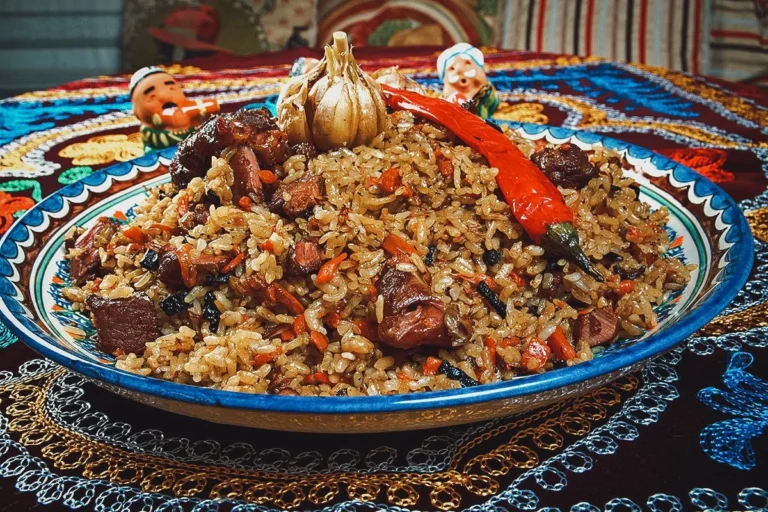Introduction: Uzbekistan’s Beverage Culture
Uzbekistan is a country in Central Asia with a rich history and diverse culture. Along with its famous cuisine, Uzbekistan is also known for its unique and flavorful beverages. The country’s beverage culture is heavily influenced by its Islamic roots and nomadic heritage. From traditional tea to fermented mare’s milk, Uzbekistan offers a wide variety of beverages that reflect its rich history and culture.
Tea: The Traditional Uzbek Beverage
Tea is a fundamental part of Uzbek culture and is considered a symbol of hospitality and friendship. It is traditionally served in a small, handle-less bowl called piala, which is usually placed on a saucer. Uzbekistan’s tea is different from the usual tea as it is prepared from a black tea blend with the addition of spices, such as cardamom, cinnamon, and sometimes even saffron. It is often served with sweets like halva and dried fruits as well as the famous Uzbek samsa pastry.
Samsa: The Uzbek Pastry and Its Companions
Samsa is a pastry that originated in Central Asia. The Uzbek version of the pastry is made with lamb or beef and onions, and sometimes with pumpkin or potatoes. Samsa is a staple in Uzbek cuisine and is often served with tea or ayran, a salty yogurt drink. In addition to samsa, Uzbekistan’s cuisine also features a variety of baked goods such as non (bread), kulcha (a type of bread with a crispy crust), and qutab (a thin pancake filled with meat or greens).
Ayran: The Salty Yogurt Drink
Ayran is a salty yogurt drink that is popular in many Central Asian countries, including Uzbekistan. It is made by mixing yogurt, water, and salt, then stirring until frothy. It is often served cold and is a refreshing drink during the hot summer months. Ayran is believed to have health benefits, such as aiding digestion and improving the immune system. It is also commonly served with samsa and other savory pastries.
Kumis: The Fermented Mare’s Milk
Kumis is a traditional beverage made by fermenting mare’s milk. It is rich in probiotics and has a slightly sour taste. Kumis is considered a delicacy and is usually served during special events and celebrations. It is also believed to have medicinal properties, such as improving digestion, boosting the immune system, and treating certain diseases. Kumis is often served with traditional Uzbek dishes, such as pilaf (rice dish) and shashlik (grilled meat).
Chakka: The Dried Yogurt Beverage
Chakka is a traditional Uzbek beverage made by drying yogurt until it becomes a thick, crumbly substance. It is similar to Greek yogurt, but with a more tangy flavor. Chakka is often mixed with water and sugar to make a refreshing drink. It is also used in many Uzbek dishes, such as the famous shurpa (soup), where it adds a tangy flavor to the broth. Chakka is believed to have health benefits, such as aiding digestion and promoting healthy gut bacteria.
In conclusion, Uzbekistan’s beverage culture is diverse and flavorful. From traditional tea and samsa to the unique kumis and chakka, Uzbekistan offers a wide variety of beverages that reflect its rich history and culture. These beverages are not only delicious, but they also have health benefits, making them a great addition to any diet.

